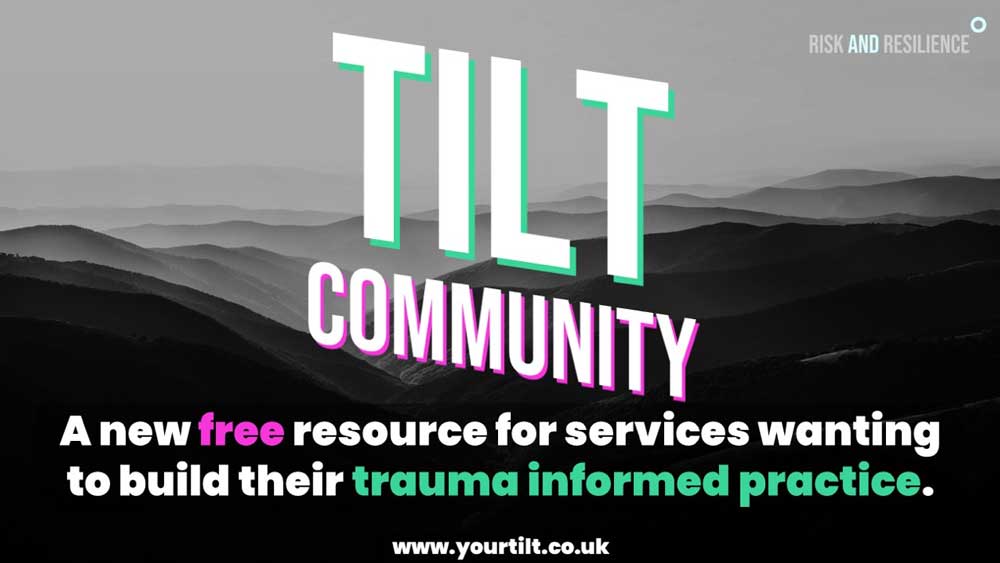TILT – the Trauma Informed Learning Tool
Building a community for trauma-informed professionals

HEALTH, CARE & SUPPORT
Image: Istock

David Gill
Founder, Risk & Resilience, and Associate Consultant, Campbell Tickell

David Gill
Founder, Risk & Resilience, and Associate Consultant, Campbell Tickell
Issue 71 | April 2024
The TILT (Trauma Informed Learning Tool) Community was born out of a collective vision to create a space where frontline professionals could come together, share experiences, and access valuable resources to enhance their trauma-informed approaches. Recognising the critical importance of unity in addressing the diverse needs of communities, we envisioned a platform that would transcend the barriers often faced by professionals in different sectors.
What is TILT?
TILT is a more human approach to e-learning that is focused on reflection rather than pass and fail exams or questionnaires. To supplement this resource (as of April 2024), the tool is now adding a community aspect, where any frontline professional, manager or other relevant professional can now sign up to share good practice, resources and form new connections.
Being trauma-informed entails realising the prevalence of trauma, recognising its effects, responding with empathy and actively working to resist re-traumatisation.
Who is it for?
This is aimed at frontline professionals working within: homelessness services; substance use services; outreach workers; mental health teams; education services; and all other relevant health and social care support.
The platform currently offers free training and paid in-depth courses. The new community will offer a range of tools and resources that will include podcast interviews with professionals, workshops on specific topics, free engagement tools for working with trauma survivors and any other resource that people in the community then share.

Breaking down barriers
The barriers for services becoming trauma informed are wide-ranging. One major barrier is the cost for services to be aware of what trauma is and how to respond effectively. Budgets are stretched incredibly thinly and staff's continued professional development is not always prioritised. The training and community aspect of TILT is designed to respond to these challenges by offering a ‘dip-in' approach whenever staff have the time to do so.
Another challenge is the sharing of good practice. The community of TILT is designed to bring services and professionals together to share good practice – something they might not otherwise be able to do, for example, due to geography.
Watch the documentary ‘We Shall Be’, which shows how a trauma-informed approach can be effective when several organisations come together. Risk and Resilience were delighted to be a part of this approach in South Tees.
Free access
At the core of TILT's development lies a commitment to accessibility. We firmly believe that transformative knowledge should be available to all, especially people who work on the front lines addressing pressing issues.
A dedication to providing free access aligns with the philosophy that positive change begins with empowering those who directly impact communities. By making TILT freely available, we aim to democratise access to trauma-informed practices, creating a ripple effect that can enhance the effectiveness of frontline services across various sectors.
Sharing best practice
The community will offer people the chance to create profiles, connect with others from different services and locations, share knowledge and resources, attend workshops, participate in challenges, listen to guest speakers, hear about up-and-coming training sessions and more.
“We aim to democratise access to trauma-informed practices, creating a ripple effect that can enhance the effectiveness of frontline services across various sectors.”

